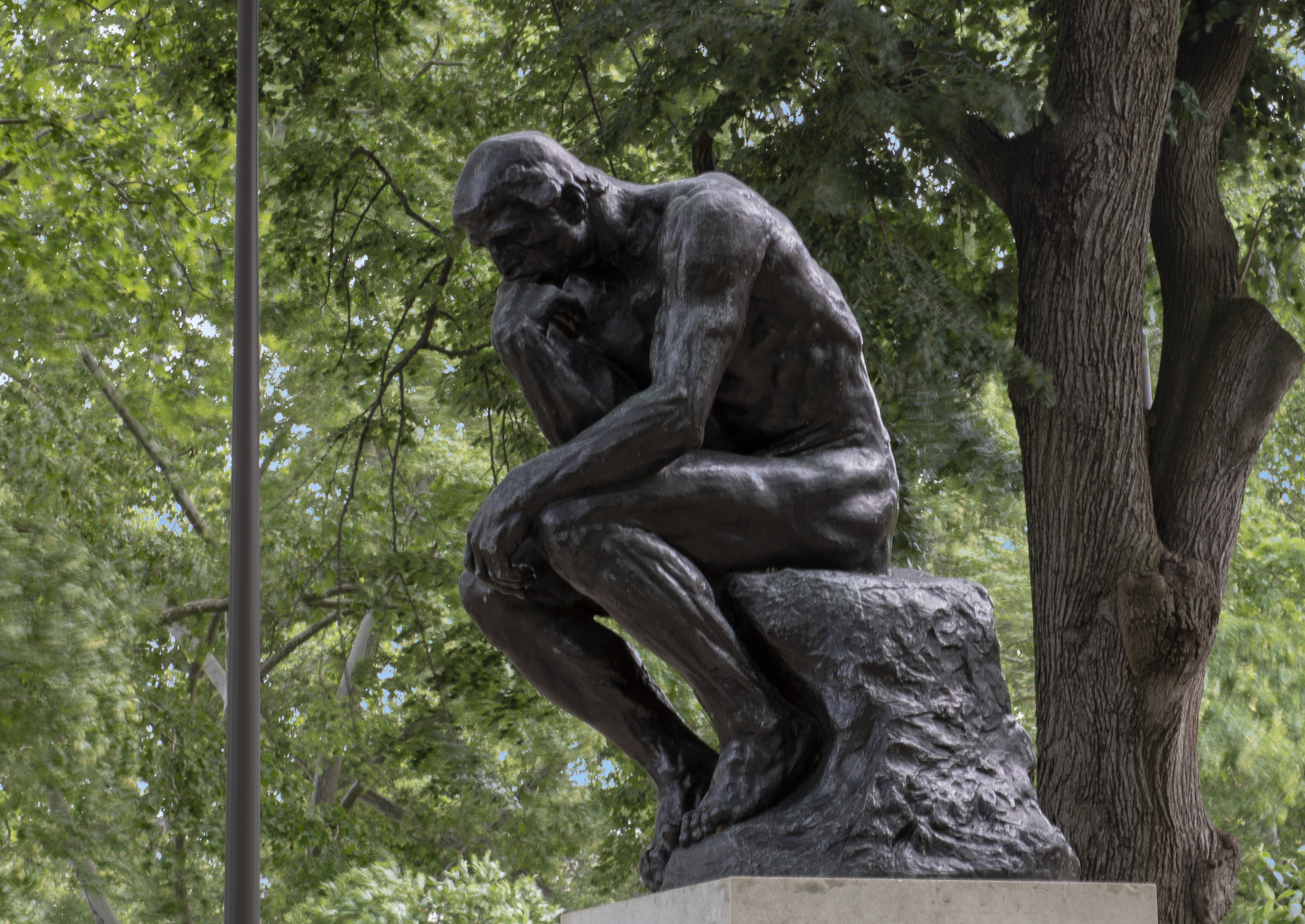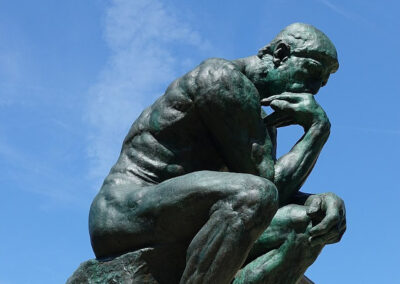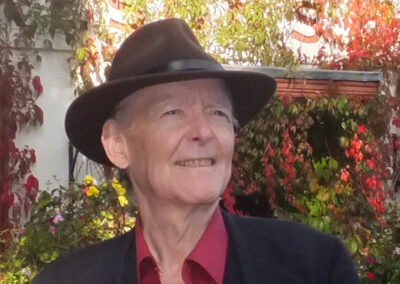I shall be ambitious to have it said of me that I brought philosophy out of the closets and libraries, schools and colleges, to dwell in clubs and assemblies, at tea tables and in coffee houses
- – Joseph Addison 1672-1719
To say that you love wisdom is to say that you value acquiring certain deep insights into certain abstract (and important) questions. One might, if one is lucky, just happen to acquire such insights without much effort. However, if you claim to love wisdom, then you cannot depend on luck to achieve what you value. Doing good philosophy requires you to invest time and effort into figuring out the questions you are interested in. This is likewise true of just about any academic field.
– Anantharaman Muralidharan[1]
Anybody can know. The point is to understand
- Albert Einstein
***
Reflection is the one Activity that does not own up to the name. It is a horizontal True North of ourselves. It is a cylinder too often uninspected under the bonnet in the engine that drives people forward into life’s choices. It is time that it has a more recognised niche in our communal psyche. We are what we have thought.
We are the Ancients, standing as we do on the shoulders of the Great of the past. They might feel the pinch of our feet of clay but we see theirs. Plato in outlining ‘three classes of men: lovers of Wisdom, lovers of Honour, and lovers of Gain’ told a truth but not the whole truth. Man has grown up. Honour, on a slow wane since chivalric days, and Gain increasingly tarnished as the glister of mercantilism outweighs the gold, the time surely is now to enthrone on high Practical Wisdom in Plato’s pecking order. ‘Reflection’ of course has been around forever but as a counterweight to our technologically driven, souped-up world, ‘Less haste more speed’ rules! OK’.
No exam in Reflection, no university course, exists but it underpins much of what people do. Our Goals are centre stage but not fostering the mental mechanics of scoring them. There is so much that we do not know we do not know, partly as we understand what we understand in ways that that we do not even try to fully understand. An olden style of meditation should be welcomed back to uphold pundits and politicos in lighting up the here-and-now as well as our varied and incompatible conceptions the Hereafter.
The active spirits in life do not think that they are sheep walking; their rams gambol ahead of the flock, horns held high, and do not question the solidity of the bedrock beneath their trotters. Action Man is not precluded from deep thinking but it is not his big thing; society’s memes don’t encourage it. There is much that is questionable about societies so best to stand tall on Plato’s plinth and focus on the exact cause of problems before opening the door for bulls to blunder into china shops to ‘fix’ their mirror image.
It may be helpful for people of a reflective disposition to have a designated public space in which to congregate and reflect, where their ideas can be debated rather than lie fallow in minds, like the proverbial desert rose doomed to wither unseen. One’s own slant on the world might have a greater impact than would otherwise be the case. It can contribute to the mulch that becomes a wellspring of ideas. The importance now of personal reflection often is downgraded to something ‘that everybody does and no one thinks much about it’. A centralised corpus of thinking from, and by, Mr Everyman, who at present can turn mainly only to the canon of philosophers, can fortify all of us in the belief that the habit of thinking for its own sake is of value. It sits better now than ever when people feel they are as good as those ‘set above them’. The wish to share thoughts can go untapped by default. Religion, which some feel is a private matter, recognises a community dimension. The meaningful and the purposive and the practical can go hand in glove. Pensées on internet like that of Anantharaman Muralidharan are starting to crop up with increasing frequency:
‘To say that you love wisdom is to say that you value acquiring certain deep insights into certain abstract (and important) questions. One might, if one is lucky, just happen to acquire such insights without much effort. However, if you claim to love wisdom, then you cannot depend on luck to achieve what you value. Doing good philosophy requires you to invest time and effort into figuring out the questions you are interested in. This is likewise true of just about any academic field.’
In mainstream meditation, people doing ‘their own thing’ are channelled by gurus or life coaches away from truly independent thinking. Political or academic authorities, define rules, methods and goals. It is a fine thing to soar up to an Empyrean or to find oneself ‘within’ but there are other objectives in cultivating habits of reflection. We are free to choose for ourselves, free to resist insidious innuendos portraying thinking for its’ own sake as a form of brooding or a ‘brown study’. It distracts from a single-mindfed pursuit of pleasure, fulfilment or mammon. Who knows what insights of value to communities or selfhood may emerge if individuals feel more encouraged and empowered to stand tall on their own ruminations? We are more likely to find our genuine selves as well as worldly success by following our own bent rather than any herd. Too often we are the unwitting victims of splurge. Reflection may tease out otherwise unnoticed nuggets in a democracy of the mind.
People may bristle if their pet beliefs are challenged but, ‘Courage, mon brave!’, cleave to objective ideas in your Ivory Tower. Why knee-jerk to opinions brayed by the ubiquitous Politically Correct, the Know-alls, the egotistical, the purblind or the misguided? A still, small voice of common sense can drown out the foghorns.
[1] https://www.quora.com/Plato-said-there-are-three-classes-of-men-lovers-of-wisdom-lovers-of-honour-lovers-of-gain-Why-can-t-I-be-all-three







